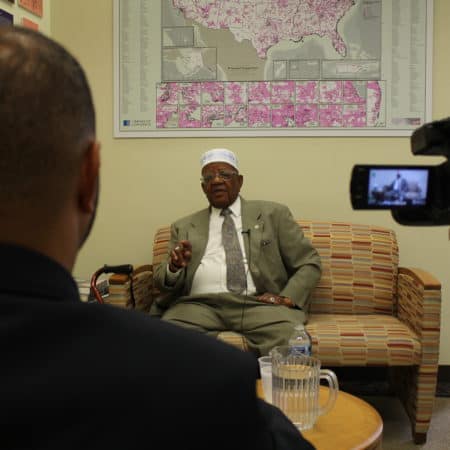Strategy: Being Interviewed

Bad interviews are easy; good ones not so much. Here you’ll find some strategies for giving interviews that result in you actually showing up in the story and being called on again for future stories.
TIPS FOR GIVING GOOD INTERVIEWS
- Prepare: Offering a clear, concise explanation of your topic takes time and preparation. Practice what you are going to say and how you are going to say it.
- Speak for a General Audience. Be relaxed, be polite and use accessible language. It is incredibly easy to fall into using jargon. Use analogies if your subject is complex. Have brief examples to illustrate your point.
- Take Control of the Story Prepare before being interviewed. Know the central message of the publication, and what assumptions the reporter may bring to the table. Be ready to clarify any actual misconceptions that arise in the conversation.
- Stay on Point: Know your message and practice it. Commit it to memory, so you can share it easily and on the spot. You may find that a one-page Message Map can help you prepare quickly. You can also use the ABCs when a reporter asks you a question way off topic: Acknowledge the question, Bridge back to your Content (the message.) For example: “I think the real point is…” or “I think the important issue is…”, etc.
- The Truth is on Your Side, So Be Accurate It’s okay to say “I don’t know that,” or ”I’ll get back to you.”
- Be a Connector: If the journalist asks you a question about a topic where you are not the expert, but you know someone who is, then refer the reporter to the better source.
- Be Helpful. Remember that while you are talking to the reporter, you are also talking through the reporter to reach your target audience. The more helpful you are, the more likely you are to be quoted in the story. And the more likely you are to be asked back for future interviews.
- Be brief. Most print media interviews last about 20 minutes, and for radio and TV they can be much, much shorter; you might only get a quick quote or sound bite. So make sure you can state your message quickly and clearly. You can find more tips on how to be brief here.
- Be on time. If you show up late, you risk being left out of the story.
- Always close with your key message. At the end of the interview, the reporter will say, “Thank you so much for your time. Do you have anything else to add?” The answer this is ALWAYS “yes.” This opening gives you one more time to get your key message heard.
Sources & Resources: TNews Media Interviews from Crystal Clear Communications: https://crystalclearcomms.com/news-media-interview-tips-to-be-a-great-spokesperson/
Despite our best efforts, we do sometimes make mistakes and are happy to correct any errors that you may come across on our site. Should you find an error, please submit one via the “submit a correction” link.